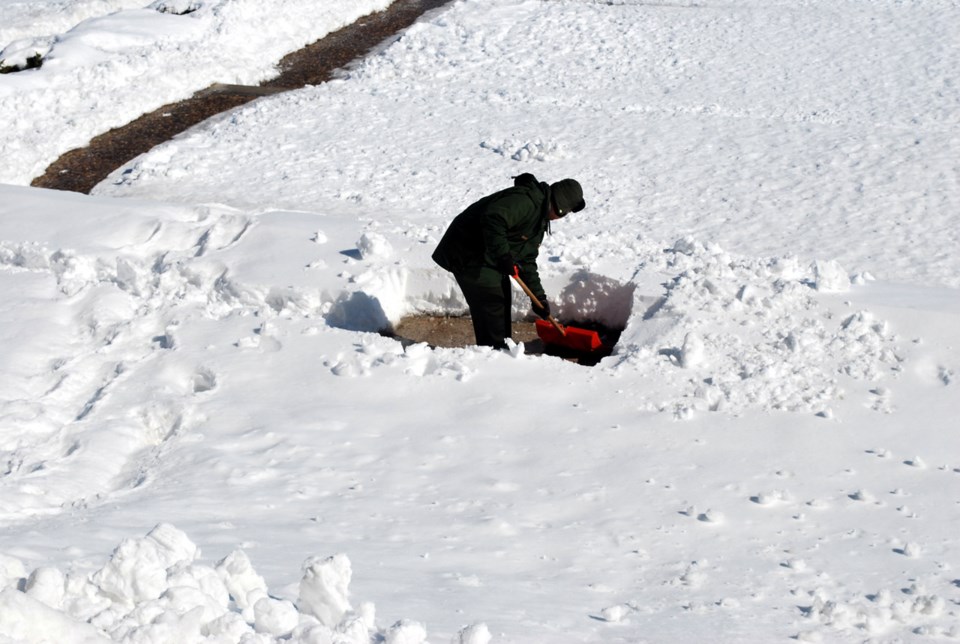What should we conclude when health experts say people over 45 should not shovel snow? That’s a young age! What could be so threatening about clearing the snow to people in the prime of life?
A winter storm may inspire some to curl up under a blanket. But for others, it’s a call to arms. Driveways must be cleared. Sidewalks too. And there’s no point in doing only half the job.
But caution is the order. Shovelling snow can be a dangerous activity. Several years ago, the Canadian Medical Association Journal reported on the link between heart attack and snowfall. Researchers matched weather data against hospital data for the 65,000 heart attacks in Quebec between 1981 and 2014. Among men, who tend to do more shovelling than women, they found a heavy snowfall of 20 cm was associated with a 34 per cent relative increased risk of death.
In the United States, between 1990 and 2006, almost 200,000 individuals made emergency department visits for snow shovel–related incidents, averaging about 11,500 individuals annually. Cardiac arrest was the deadly result of shovelling for 1,647 people. Other hazardous results included soft tissue and lower back injuries. The exertion of shovelling was not the only concern. Slips and falls while shovelling accounted for one of five patients. A further 15 percent of patients had been hit by a shovel.
Heavy snowfall does make for uncommon risks, even among northern dwellers. In Finland, in 2010, quite astonishingly, there was an epidemic of accidental falls from rooftops by people attempting to clear snow. During a three-month period, one hospital alone saw 46 victims.
In Japan’s northern Akita prefecture too, between December 2009 to March 2012, 352 people required emergency department visits because of falls from heights while clearing snow, and of these 16 died.
Even after a public service campaign about the hazards, between December 2015 and March 2018, another 168 people fell from heights while clearing snow. Seven of them died.
Most people don’t stop to consider the risks before setting out to clear snow. But an explanation might get them thinking.
Dusting off the deck after a light snow is probably not going to cause a cardiac event. But shovelling heavy snow even for a short time is akin to a hard workout. To do it on a single occasion, without gradually working up to that heavy level of exertion, is inviting trouble.
People with high blood pressure should be especially cautious, as should those who are overweight, smoke or have an inactive lifestyle. Why? Because shovelling will raise both blood pressure and heart rate. These are the conditions that invite plaque build-up in the arteries to rupture, forming a blood clot that causes a heart attack.
What’s the solution? Common sense and moderation.
Don’t shovel after eating or drinking alcohol, just as you wouldn’t go for a heavy workout at such times. Would you work out in a snowsuit? Probably not, so be ready to take layers off as your body heats up. Unless you’ve prepared for a heavy workout, approach the task in smaller pieces. Take breaks and drink water.
Experts also recommend another lifesaving measure – everyone should learn CPR. When heart attack occurs, bystanders can significantly improve the chance of survival by starting CPR quickly.
One final recommendation might be the most sensible one. Make arrangements with someone under 45 to shovel your snow! The youthful age limit relates to research showing that 85 percent of adults aged 50-plus already have underlying coronary artery disease.
Sign-up at www.docgiff.com to receive our weekly e-newsletter. For comments, [email protected].



